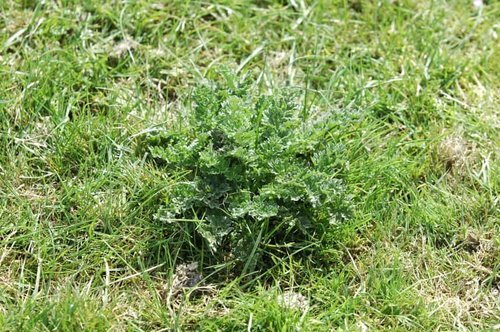The British Horse Society (BHS) is raising awareness of the common wildflower ragwort, and the toxic risk it poses to horses.
Ragwort, often found thriving on wasteland, road verges and railway land, contains toxic compounds which can poison horses if eaten in any state.
Grazing animals such as horses are particularly at risk of ragwort poisoning and if eaten it can damage the liver, which may result in severe disease and even death.
Ragwort control is vital to stop the spread and The BHS has produced a toolkit that offers guidance on how to identify ragwort, as well as how to remove the plant safely and effectively, and how to resolve issues with neighbouring landowners, including public bodies.
Emmeline Hannelly, welfare education manager at The BHS said: “Ragwort has a bitter taste so horses don’t tend to eat it, however, when wilted or dried it becomes more palatable as it loses its bitterness but retains its toxicity.
“This is particularly dangerous for horses, especially if it is found in forage such as hay. Ragwort plays an important and significant role in the British ecosystem and The BHS does not advocate blanket removal of the plant, however it should be removed from areas with grazing livestock and horses, as well as forage production land.”
As well as acknowledging the harm ragwort can cause to horses, The BHS is also raising awareness of the legal obligations, under the Weeds Act 1959, for landowners/occupiers to control the spread, if it poses a high-risk to land used for grazing or forage production.
Ragwort seeds can lie dormant for years so dealing with the issue as soon as possible will help decrease the risk of spread.
If ragwort is found growing within 50 metres of your land, this is deemed high-risk and the landowner/occupier should be contacted to discuss the risk and removal.
Ragwort growing within 50-100 metres of your land is also deemed medium risk and it is recommended you contact the landowner.
If you are not getting the cooperation you need from a neighbouring landowner, then the only route to enforcement is through a formal complaint, raised under the Weeds Act, with your nation’s relevant public body.
In such cases, raising the complaint early in the season is vital to avoid disappointment. The British Horse Society is working with John Calder, of the Ragwort Alert Group to determine if a review of the complaint process is required. Contact jccalder@gmail.com, before the end of July, if you need help progressing a complaint this season.
The British Horse Society has a wealth of information about ragwort, including who to report complaints to and a ragwort toolkit available on its website. Visit bhs.org.uk/ragwort.
Don’t miss the latest issue of Your Horse Magazine, jam-packed with training and veterinary advice, horse-care tips and the latest equestrian products, available now.









